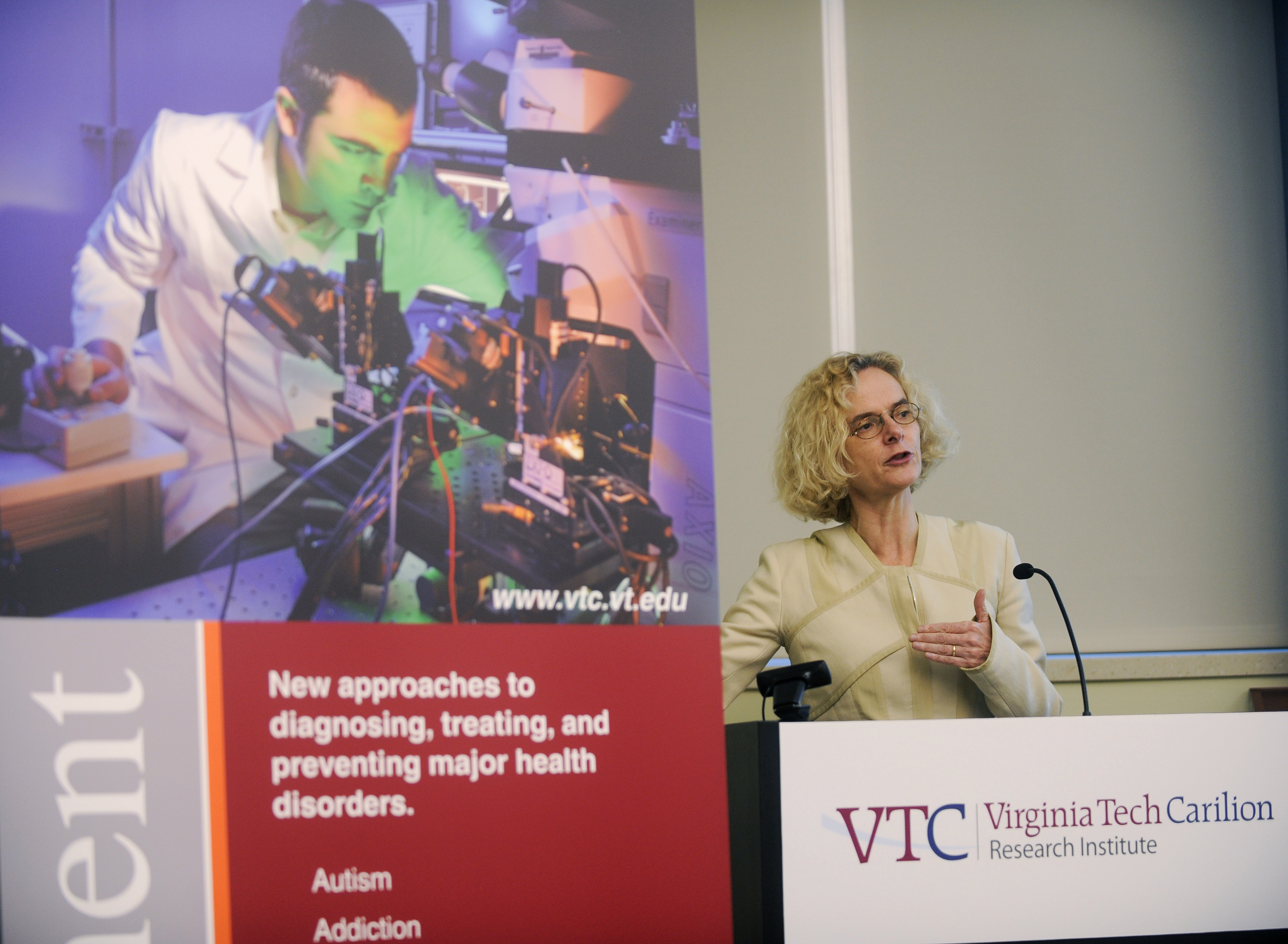Virginia Tech announces national addiction registry

C.W. started getting high when he was only 13. "I started off sniffing gasoline out of a lawnmower, then moved on to beer, wine, and marijuana," he said. Soon he was snorting cocaine, taking speed, and basing major life decisions — dropping out of high school, leaving the military, quitting a stable job, even abandoning his family — on his need to get high. He eventually found himself dodging drug dealers who were threatening to kill him over his mounting debt.
It was a near-fatal accident that ended up saving C.W.'s life. He had been celebrating payday in customary fashion — with alcohol and drugs — when he borrowed a friend's car, veered off the road, slammed headfirst into a tree, and broke his neck. "And that," he said, "was the beginning of my new life."
C.W. checked himself into the psychiatric ward of a local Veterans Affairs hospital, then entered rehab. He has not touched drugs or alcohol for the past 15 months.
How did C.W. beat his addiction, and how has he been able to sustain his recovery? Those are the central questions driving the National Quit & Recovery Registry, launched last week by the Virginia Tech Carilion Research Institute.
The National Quit & Recovery Registry collects the experiences of those in recovery through web-based sharing — also known as crowdsourcing — to enhance scientists' understanding of addiction, whether to tobacco, alcohol, drugs, or harmful behaviors, such as overeating, excessive sexual activity, and gambling. Led by Warren Bickel, director of the Advanced Recovery Research Center of the Virginia Tech Carilion Research Institute, the registry taps the insights and experiences of people who quit a tobacco habit at least a year ago or have been in recovery from an addiction for one year or longer.
"No one has ever systematically looked at people in long-term recovery for clues about beating addiction," Bickel said. "Yet we know from neuroimaging studies that addiction literally changes the structure of the brain. We know, too, that those changes can persist months and even years into recovery. So we're trying to understand the addictive brain by shining a spotlight on the recovery process."
"There is so much to learn," Bickel added. "We can learn what methods these recovery heroes used to quit their addiction, and what strategies they use to remain in recovery when faced with challenging circumstances, such as the temptations associated with the holidays. We can learn about their decision-making skills. And, with neuroimaging techniques, we can learn how their success impacts their brain function."
During a Sept. 30 press conference announcing the registry launch, Dr. Nora Volkow, director of the National Institute on Drug Abuse, said she hopes the registry will inspire more researchers to focus on recovery. "Most of the research that has been done up to now has focused on that immediate intervention that would allow a person to stop taking drugs," she said. "Much less is known about recovery."
Volkow said that data are lacking not only about the percentage of addicts who eventually recover but also about the process of recovery. "What are the active ingredients," she asked, "that can help us predict who is more likely to be successful and who is more vulnerable, so we can intervene accordingly?"
The costs of failing to intervene appropriately are high for individuals, their families, and society. According to the National Institute on Drug Abuse, substance abuse alone costs the United States more than $600 billion annually in health care expenditures, crime-related costs, and lost productivity. As dramatic as this number is, it fails to fully capture the human costs of addiction, including destroyed health, premature death, family disintegration, domestic violence, child abuse and neglect, and threats to public safety.
"Given the enormity of the problem," Bickel said, "we're hoping this database will become a national resource for researchers."
On an anonymous and confidential basis, registry participants — known as recovery heroes — provide scientists with information about their addictions and their paths to recovery. They also indicate the level of their willingness to volunteer for studies, which may involve the completion of online questionnaires or the undertaking of Web-based tasks. In some cases, registrants may be invited to participate in more detailed studies at the Virginia Tech Carilion Research Institute in Roanoke, Va., or at a collaborating site. Those in recovery are also encouraged to share the stories of their triumphs online.
Volkow pointed to the importance of these stories in helping to overcome a major obstacle in society's battle with addiction: stigmatization. "We need to stop the silence," she said. "And the only way we're going to stop the stigmatization is by speaking up." Volkow went on to call Bickel's idea for the registry "brilliant" because it both creates a platform for allowing people to speak up and highlights success in recovery.
"Through the stories that recovery heroes post online, we want the registry to serve as a source of inspiration for those struggling with addiction," Bickel said, pointing to the example of C.W., who became an early participant in the online registry.
"I'm very proud of my recovery," said C.W., now a car mechanic in Virginia. "I was a hopeless case, but I made it. I've stayed clean, and I feel free."

Nora Volkow
"Thanks very much in part to technologies like brain imaging, we've started to understand that repeated drug exposure basically changes your brain," Dr. Nora Volkow, director of the National Institute on Drug Abuse, said during the announcement of the National Quit & Recovery Registry. "And that of course has led to the recognition that drug addiction is a chronic disease of the brain."








